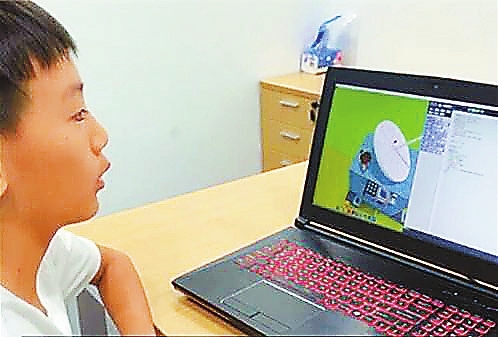
Grade three and four students from the Experimental School of Shenzhen Institute of Advanced Technology in Nanshan District had their flairs for computer programming and script-writing have been recently recognized nationally at the 10th China and Guangdong Adolescent Science Film Festival. Two clips named “Magical Lollipop” and “Fire Which Can Write,” both authored and starred by the grade 3 students from the animation programming and script-writing program of the school, won third prizes in the national selection of scientific microfilms competition. A computer program named “Solar Clock” created by grade 4 students from the program won a third prize in the national selection of scientific documentaries competition and a second prize in the provincial selection of the science film festival competition. In 2019, the school opened a curriculum that includes programs on arts and scientific technologies. The animation programming and script-writing program enrolled students at or above grade two at the start of a school year and divided those students into programming and scrip-writing classes based on their age and actual needs. Under the instruction of Guo Qichen from the animation school of Shenzhen Polytechnic, students at the script-writing class have finished a total of 23 animation scripts and will be taught on how to design animated characters and how to shoot cartoons. The programming class is open to students between grades two and five and features courses in computer programming and 3-D animation. The courses are being presented by Li Xizhi, CEO of Shenzhen Tatfook Technology Co., Ltd. and the founder of a free, open-source programming platform named Paracraft. Using Paracraft as their major learning tools source, the students are guided through an interest-based, project-based, and open-source learning model which inspires and enlightens their computing talents. They have created a collection of games with excellent gameplay features and intriguing animation works. Thanks to the program, the students have mastered basic programming skills and thinking methods, and the program has invigorated their interests in computer technology. Some of them have even displayed their potential for becoming future programmers. (Wang Haolan) | 
